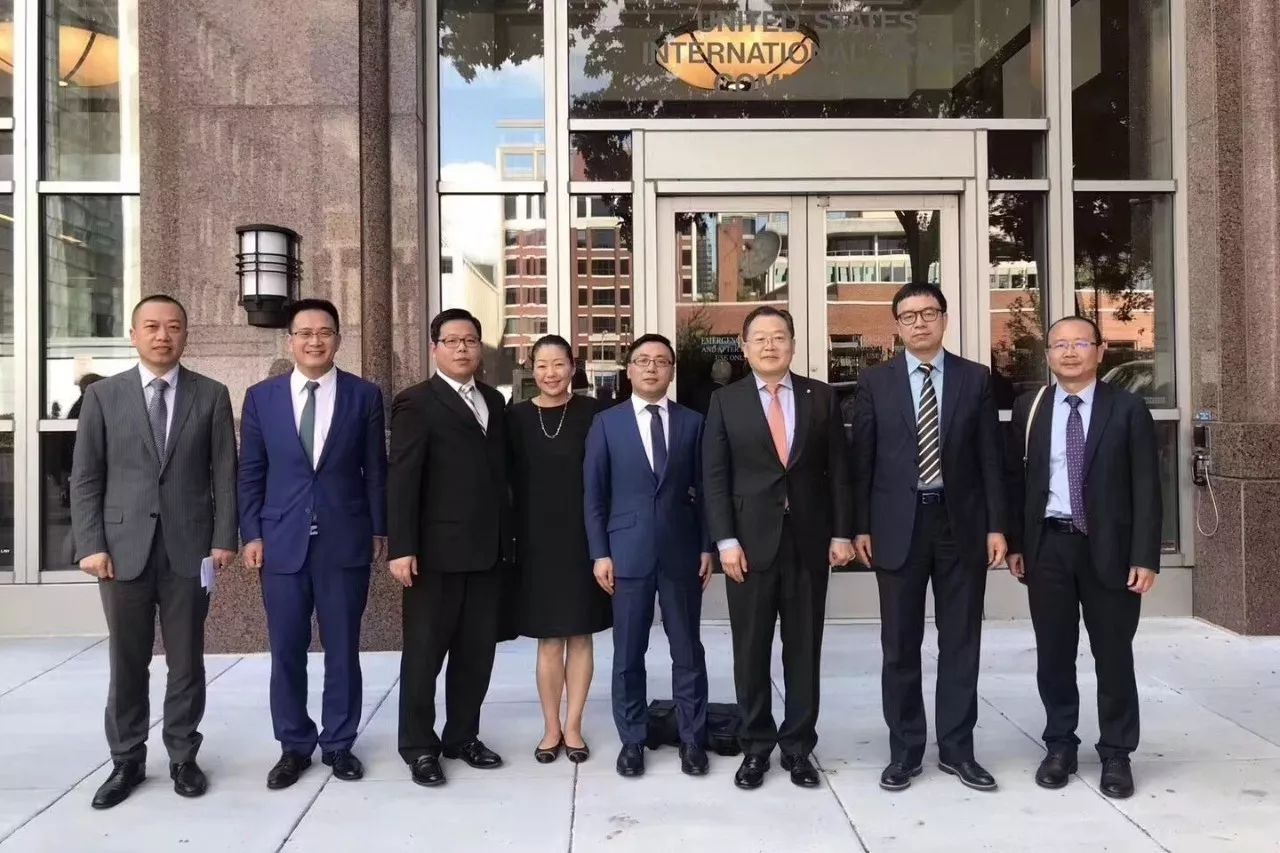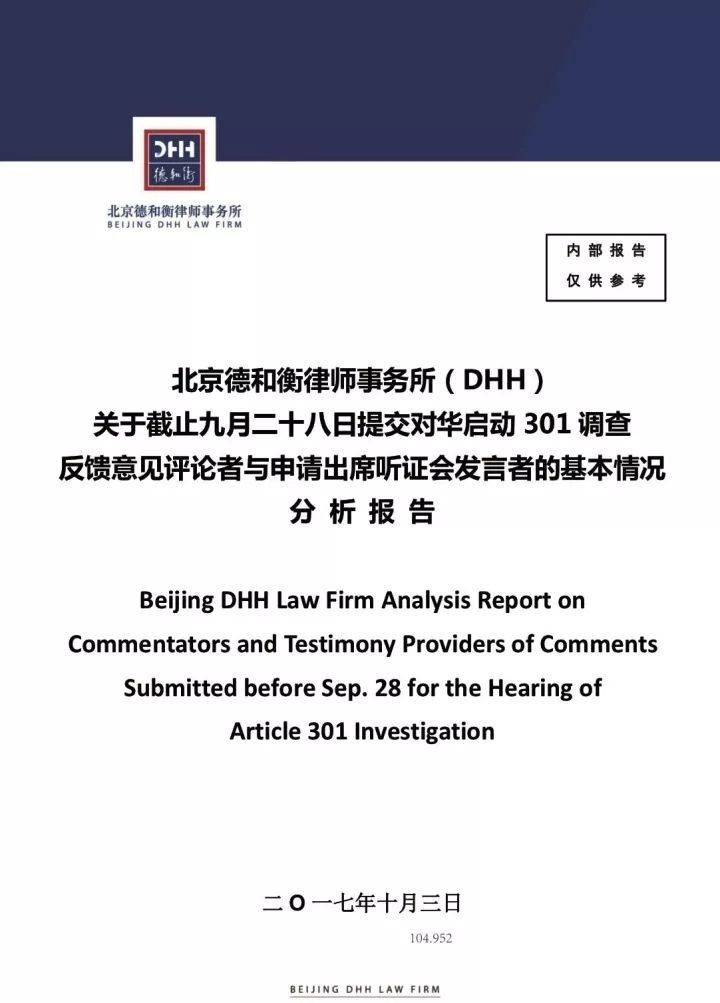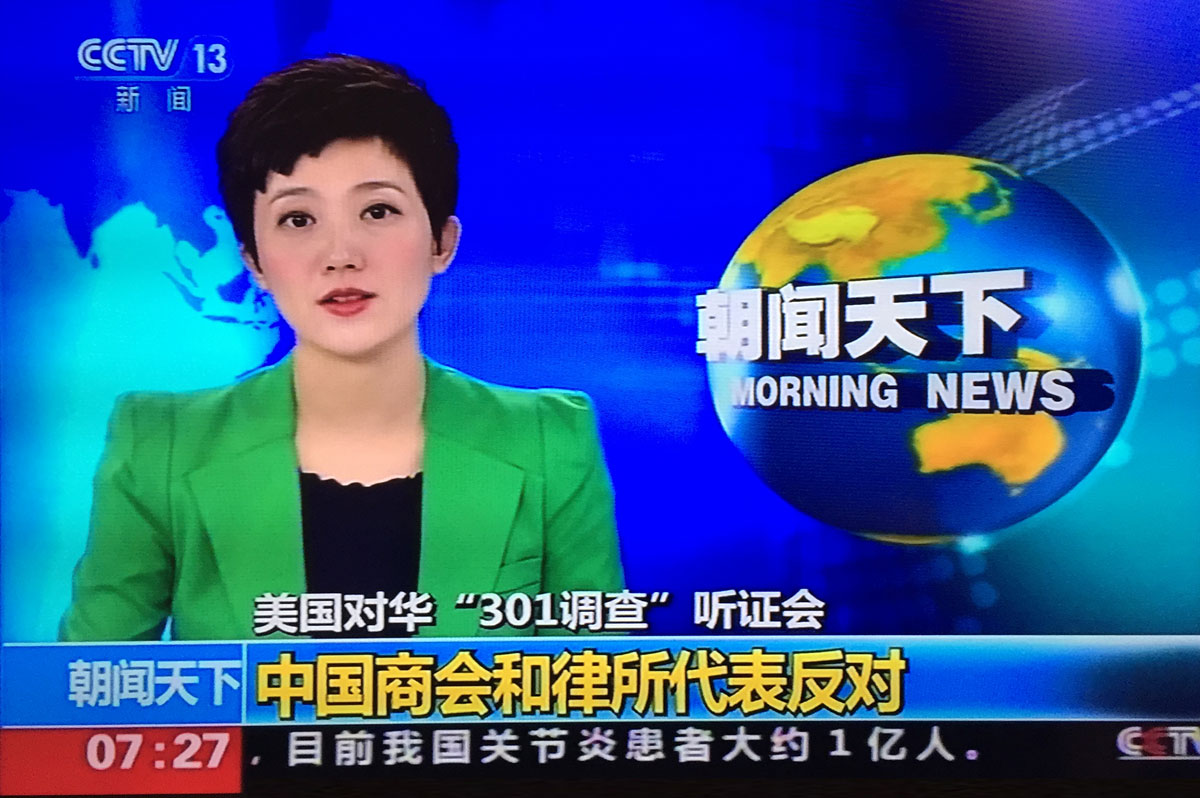Beijing DHH Law Firm Playing an Important Role in Section 301 Investigation

In August, the US Trade Representative Robert Lighthizer formally initiated an investigation of China under Section 301 of the Trade Act of 1974. The investigation will seek to determine whether acts, policies, and practices of the Government of China related to technology transfer, intellectual property, and innovation are unreasonable or discriminatory and burden or restrict US commerce.
Lawyers from Beijing DHH Law Firm have played an important role in the ongoing Section 301 Investigation. Mr Jiang Qi, the Managing Partner of DHH, and Mr Liu Xinze, the Executive Director of DHH Washington D.C. Office, are leading a team of DHH lawyers in defending the Chinese government against the Section 301 investigation.
Earlier this month, DHH lawyers Mr Jiang Qi and Mr John Tang provided oral testimony at the Section 301 Investigation Hearing held at the U.S. International Trade Commission in Washington D.C. DHH lawyer Mr Liu Xinze also provided testimony on behalf of the China General Chamber of Commerce. Mr Jiang Qi and Mr John Tang began by expressing their hope that the Sino-US trade relationship will continue to develop harmoniously.

The DHH legal team went on to explain how the Chinese legal system has, despite its shortfalls, incorporated the requirements and standards set by the WTO. As China is becoming a more developed country, its intellectual property protection laws are similarly being affected on a daily basis. We see this in the progression of changes to China's patent, trademark, and copyright laws, which continue to expand the level of protection, increase statutory damages, and implement better enforcement not only for foreign investors in China but also for its domestic companies.
China taken steps to pass special rules specifically protecting foreign intellectual property. For example, the recently passed "Action Plan for Protecting Foreign Companies' Intellectual Property Rights" is aimed at taking action against intellectual property violations on foreign companies' intellectual property in China. The plan lists 11 working tasks, clarifies responsibilities for each participating department, calls for a harsh clampdown on violations of trade secret, patent right, malicious trademark registration, infringing famous brands, and intellectual property infringement and piracy. These efforts by the Chinese government are intended to create market conditions as well as create investment conditions that encourage fair competition.
The DHH lawyers went on to explain that although some cross-border mergers and acquisitions are carried out by business entities that have government ownership, politics does not have an influence on business decisions. Chinese businesses, whether private or those with government ownership, make decisions on an independent basis to the best judgement of the management of those businesses. In response to a question on joint venture requirements for operating in China, Mr Liu Xinze explained that a joint venture requirement is not uncommon throughout the world, with even the most developed economies such as the US maintaining some reservations regarding foreign investment access.
There are about 20 sectors that are reserved by the US, and many other countries also retained reservations regarding foreign investment through the means of joint venture or foreign investment limitation. For example, Japan, Canada, Australia, Korea, Singapore, India, Vietnam, Malaysia and many other countries retain such foreign equity limitations or joint venture requirements. The level of openness to foreign investment depends to a large extent on the economic level of the host country. A general observation is that developing countries, such as India, Vietnam, Philippines, Malaysia etc are more likely to have joint venture requirements or other limitations.

In China, the joint venture requirements or foreign equity limitations are becoming less common. In the 1990s, there were about 90 restrictions, but now there are only 35 sectors that are subject to restrictions. Out of these 35 sectors, only some have joint venture requirements or foreign equity limitations. Furthermore, many of these sectors include areas such as banking, insurance, securities, education and healthcare, so the rationale behind the joint venture requirement is clearly not to obtain the technology of foreign companies.
In the next step of the Section 301 Investigation, the USTR will likely issue a damage assessment figure that can be used as the basis for a preliminary calculation of potential sanctions. These sanctions could be implemented if the US decides that China is making insufficient progress towards satisfactory resolution of the problems identified in the original complaint. US President Donald Trump will visit Beijing in early November and we are likely to get a clearer picture of the situation by then. Beijing DHH Law Firm will continue to play a key role in defending the Chinese government against the Section 301 Investigation.





